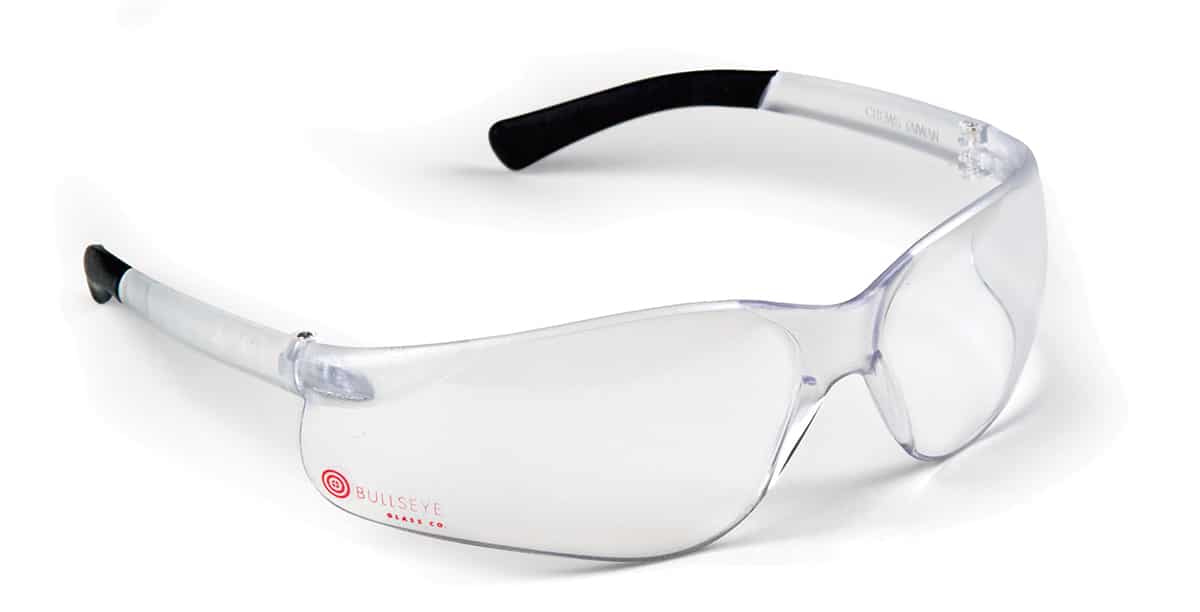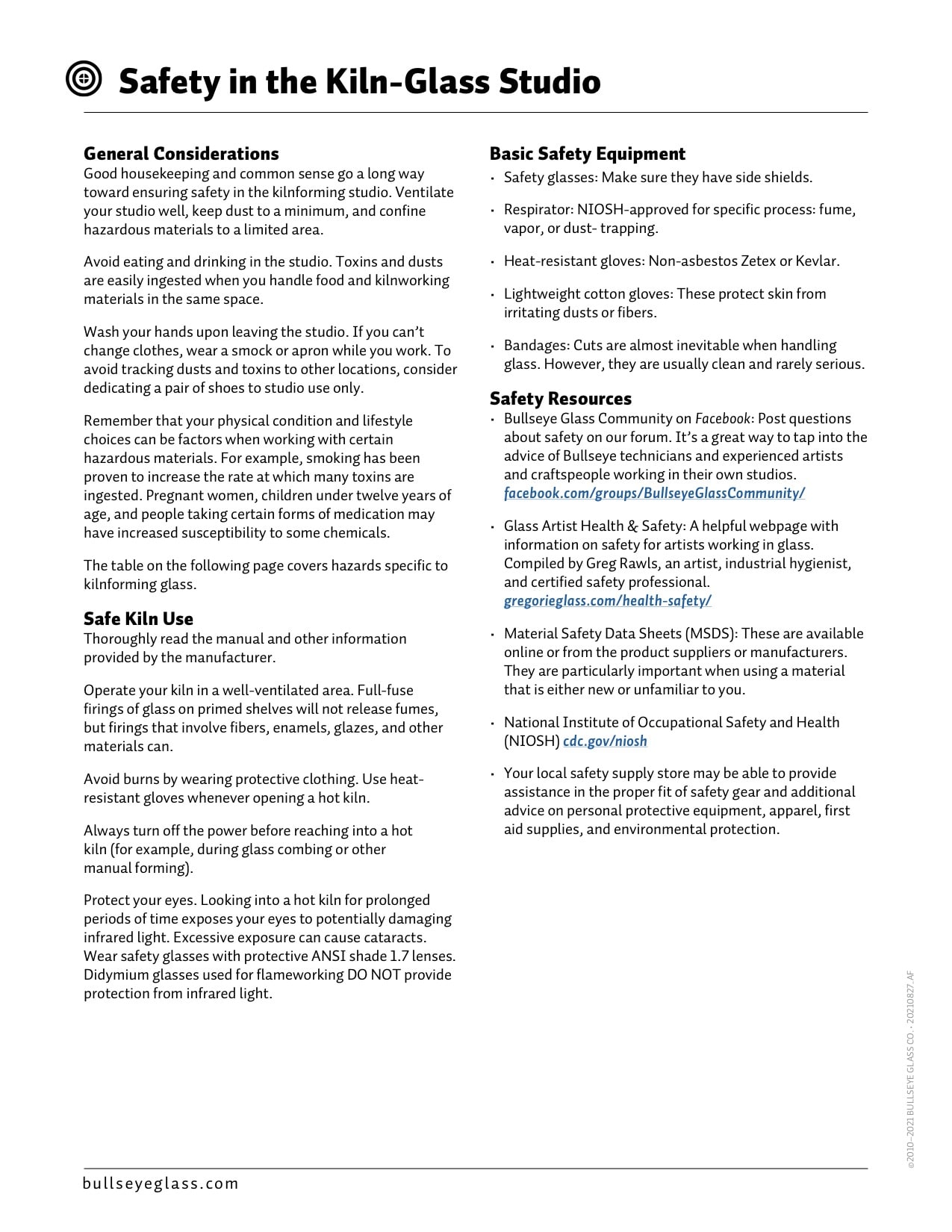General Considerations
Good housekeeping and common sense go a long way toward ensuring safety in the kilnforming studio. Ventilate your studio well, keep dust to a minimum, and confine hazardous materials to a limited area.
Avoid eating and drinking in the studio. Toxins and dusts are easily ingested when you handle food and kilnworking materials in the same space.
Wash your hands upon leaving the studio. If you can’t change clothes, wear a smock or apron while you work. To avoid tracking dusts and toxins to other locations, consider dedicating a pair of shoes to studio use only.
Remember that your physical condition and lifestyle choices can be factors when working with certain hazardous materials. For example, smoking has been proven to increase the rate at which many toxins are ingested. Pregnant women, children under twelve years of age, and people taking certain forms of medication may have increased susceptibility to some chemicals.
The table on the following page covers hazards specific to kilnforming glass.
Safe Kiln Use
Thoroughly read the manual and other information provided by the manufacturer.
Operate your kiln in a well-ventilated area. Full-fuse firings of glass on primed shelves will not release fumes, but firings that involve fibers, enamels, glazes, and other materials can.
Avoid burns by wearing protective clothing. Use heatresistant gloves whenever opening a hot kiln.
Always turn off the power before reaching into a hot kiln (for example, during glass combing or other manual forming).
Protect your eyes. Looking into a hot kiln for prolonged periods of time exposes your eyes to potentially damaging infrared light. Excessive exposure can cause cataracts. Wear safety glasses with protective ANSI shade 1.7 lenses. Didymium glasses used for flameworking DO NOT provide protection from infrared light.
Basic Safety Equipment
• Safety glasses: Make sure they have side shields.
• Respirator: NIOSH-approved for specific process: fume, vapor, or dust- trapping. • Heat-resistant gloves: Non-asbestos Zetex or Kevlar.
• Lightweight cotton gloves: These protect skin from irritating dusts or fibers.
• Bandages: Cuts are almost inevitable when handling glass. However, they are usually clean and rarely serious. Safety Resources…
To learn more, download and print the free pdf article, also available for your convenience as part of Bullseye’s TechBook.


